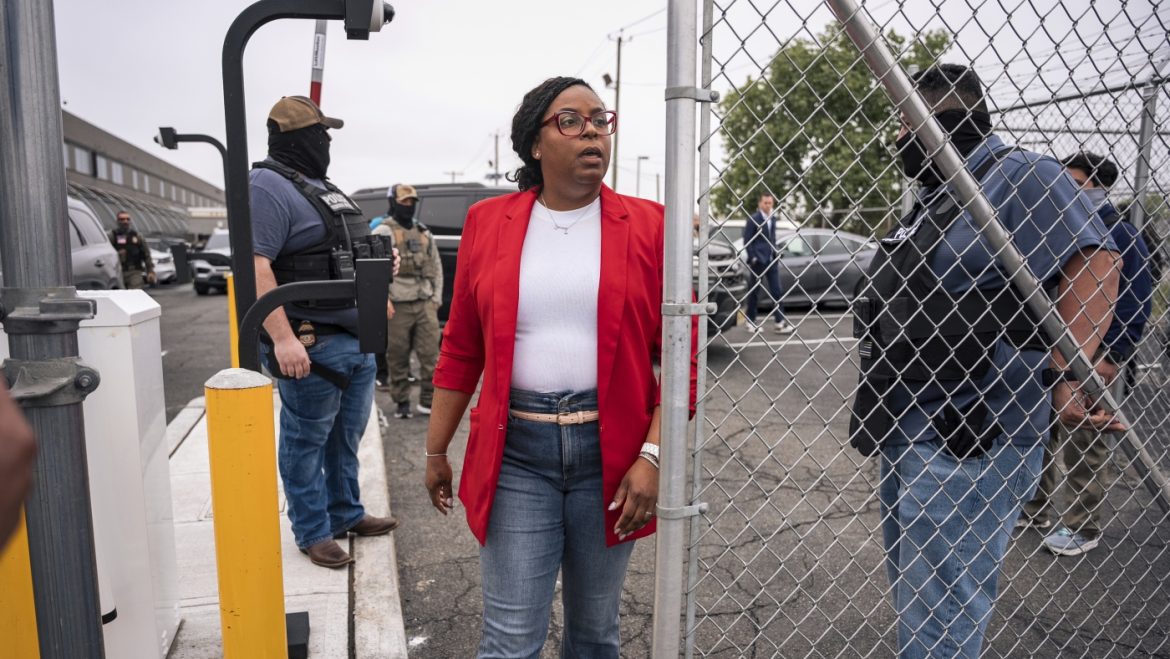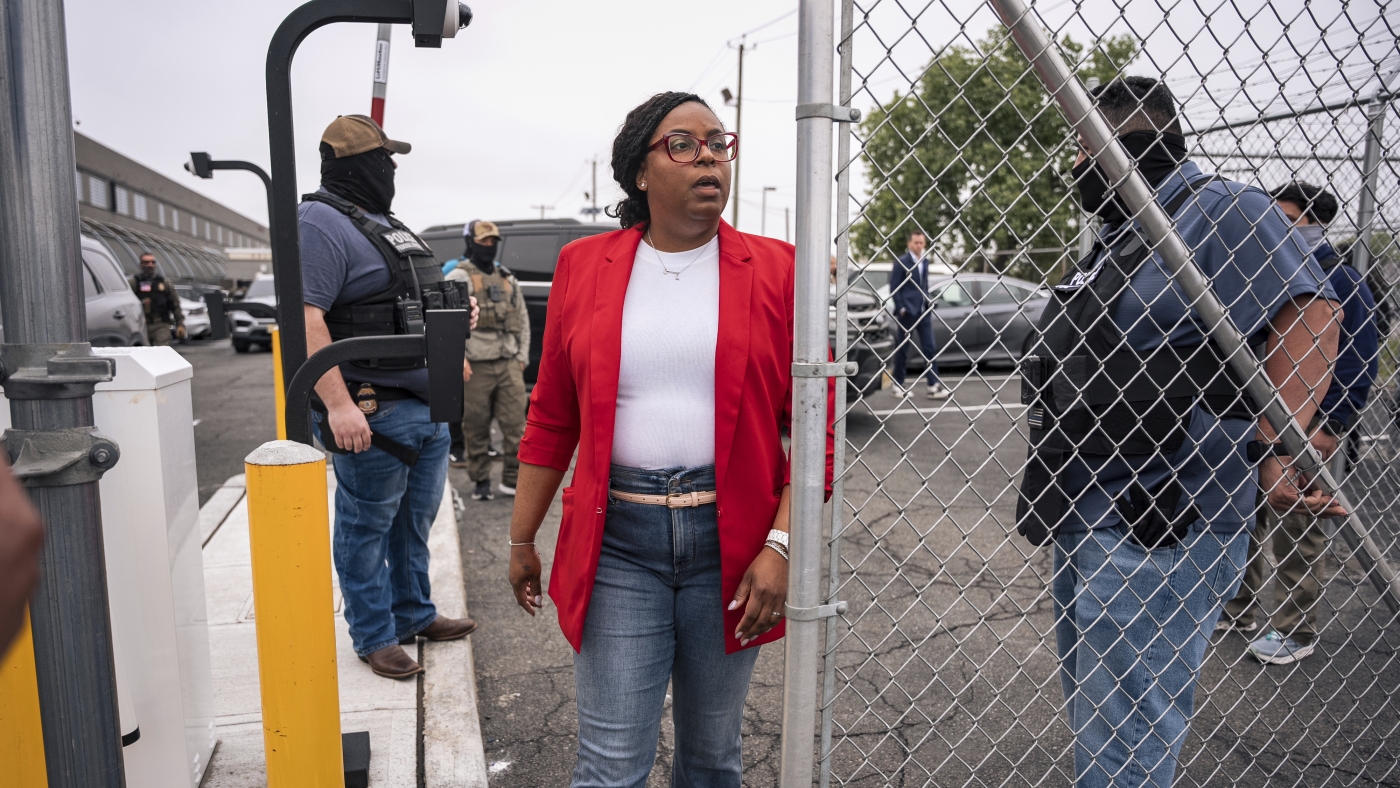Allegations and Indictment of Rep. LaMonica McIver: An Overview
In a recent federal indictment announced by the interim U.S. Attorney for New Jersey, Alina Habba, Representative LaMonica McIver, a Democrat representing New Jersey, has been charged with multiple federal offenses. These charges stem from an incident that allegedly occurred outside an Immigration and Customs Enforcement (ICE) detention facility in Newark in May. The indictment centers on accusations that McIver forcibly impeded and interfered with federal officers, escalating to assault during a skirmish involving the attempted arrest of Newark Mayor Ras Baraka.
—
Context and Details of the Incident
On May 9, Rep. McIver, along with colleagues Reps. Rob Menendez and Bonnie Watson Coleman, visited the Delancey Hall immigration detention center in Newark. The visit, intended to scrutinize the conditions and treatment at the ICE facility, devolved into a confrontation. According to federal authorities, McIver’s actions during this event went beyond peaceful protest or oversight, culminating in physical engagement with federal law enforcement officers.
The critical point in the indictment addresses her involvement in obstructing officers who were attempting to arrest Mayor Ras Baraka, further complicating an already tense environment. The incident reportedly escalated to a physical tussle, with allegations that McIver engaged in assaultive conduct against the officers.
—
Legal Charges and Implications
The federal grand jury returned a three-count indictment against McIver, including charges of forcibly impeding federal officers. While specific legal statutes invoked remain unspecified in these reports, such charges typically include obstructing federal law enforcement in the performance of their official duties and possibly assaulting officers.
If convicted, these charges carry significant penalties. Reports indicate that McIver could face up to 17 years in prison—a stark reminder of the gravity with which federal authorities are treating this incident. McIver has announced plans to plead not guilty, signaling a contested legal battle ahead.
—
Political and Public Reactions
The indictment has rapidly become a contentious issue. McIver characterized the proceedings against her as “a brazen…” (the statement is incomplete in the reporting), suggesting she views the indictment as unfounded or politically motivated. This reflects a broader tension often seen when elected officials confront federal authorities over immigration enforcement and civil liberties.
The skirmish and subsequent legal action also resulted in the dropping of a trespassing case against Mayor Baraka, indicating selective prosecutorial decisions that may fuel public debate over fairness and political influence.
—
Broader Implications for Immigration Oversight and Law Enforcement Relations
This incident highlights the fraught relationship between congressional oversight efforts of immigration detention facilities and federal law enforcement’s mandate. Visits by members of Congress to ICE detention centers are standard practice for oversight but can become flashpoints, especially when activism and enforcement collide.
McIver’s case demonstrates how such engagements can escalate, attracting significant federal criminal charges that may deter future visits and advocacy. Moreover, it calls attention to the balancing act between ensuring accountability in immigration enforcement and respecting the authority of law enforcement officers.
—
Conclusion: A High-Stakes Confrontation Reflecting Deep Divides
The indictment of Rep. LaMonica McIver marks a significant flashpoint at the intersection of immigration enforcement, congressional oversight, and law enforcement authority. With potentially severe legal consequences looming for McIver, the case underscores the escalating tensions surrounding immigration policy debates and the risks faced by elected officials who challenge federal enforcement actions directly.
As McIver prepares to contest the charges, this incident will likely prompt continued national discourse on the limits of protest, the scope of congressional oversight, and the prosecution priorities of the Justice Department. The unfolding legal process promises to be closely watched for its implications on political activism, law enforcement transparency, and the role of Congress in immigration oversight.


